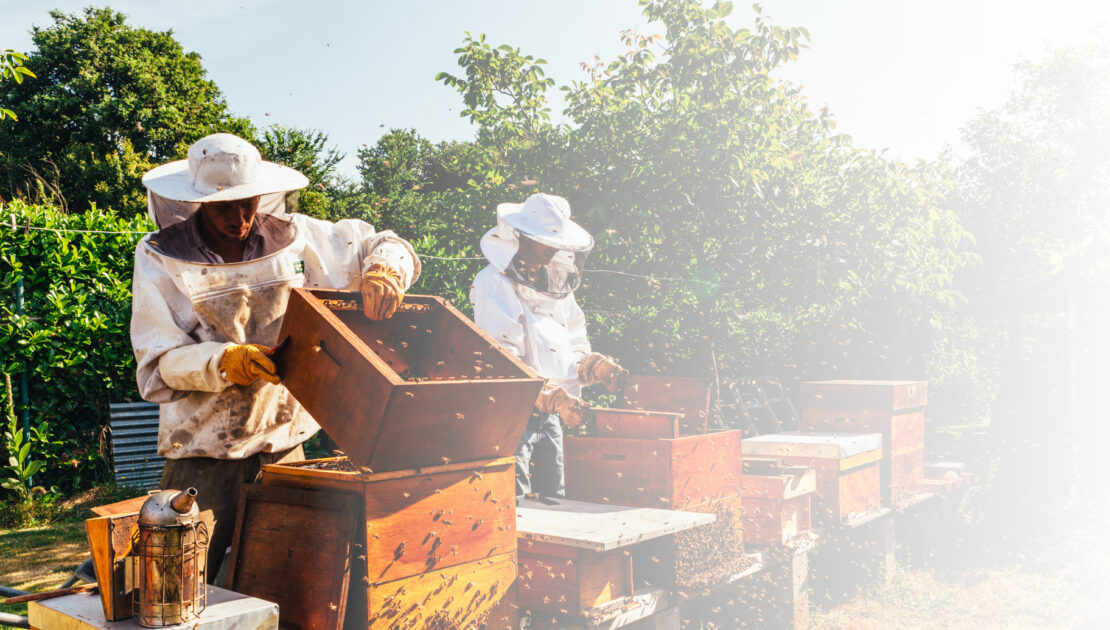Unlike the UK where beekeeping is often a hobby, in Kenya and other African countries it is principally for family food, income and sometimes medicine. It is an activity that can easily be carried out by men and women of any age. It is also an ideal activity for groups such as women’s groups, youth groups, men’s groups, church groups etc. as an income- generating activity. Although beekeeping is an old practice in Kenya and other developing countries, the last fifteen years has seen an increase in awareness and benefits of beekeeping. The emphasis has been on adoption of modern beekeeping with an aim of increasing household incomes and food security. Initiatives to develop beekeeping have overcome some of the traditional taboos, where women in some communities in Kenya are not highly active in beekeeping, a role that was predominantly a male domain. The potential of beekeeping to mitigate economic hardship cannot be overemphasized. Beekeeping can significantly contribute to household poverty reduction if well managed. As well as honey, beekeepers have diversified their income to include other hive products such as beauty products like face and hand creams, medicinal products and household wax products.

- February 25, 2022
- Comments: 0
- Posted by: admin
Transforming Lives Through Beekeeping in Rural Kenya
In line with the internationally agreed Sustainable Development Goal 1 on ending poverty in all its forms everywhere, Bees Abroad has been supporting beekeeping activities in Kenya since the early 2000s. This has been achieved through supporting group projects and the implementation of one major project entitled: ‘The Bee Products Enterprise Development Project’, from 2013–2016 in partnership with its in-country implementing partner, known as the Centre for Research and Advocacy in Human Rights (CERA Rights). The project resulted to 1,240 households benefiting from training in modern beekeeping, increased production and sale of hive products, business development, as well as development of beeswax and honey value- added products. Currently Bees Abroad is supporting nine group projects spread across Kenya and at various stages of development. From support provided in the past, there are testimonies of benefits from beneficiaries.
. Take for instance the case of Merioth Nduhiu. Merioth used to operate a small honey outlet in Nanyuki town. In 2013, Bees Abroad recruited her as one of the staff under the Bee Products Enterprise Development Project and took her for value-addition training at the National Beekeeping Institute in Nairobi. She was then engaged in training community groups on value-added products from the hive. Although the project engagement lasted for only three and a half years, the experience gained through the exposure provided by Bees Abroad and its in-country implementing partner saw her adopt the training and she has since then expanded her business tremendously. Initially, she had a monthly sale turnover of Kshs 20,000 (£160) but with the intervention of Bees Abroad, her business now has a monthly sales turnover of more than Kshs 50,000 (£400). In the recent past, Merioth has also ventured into offering beekeeping consultancy to private

